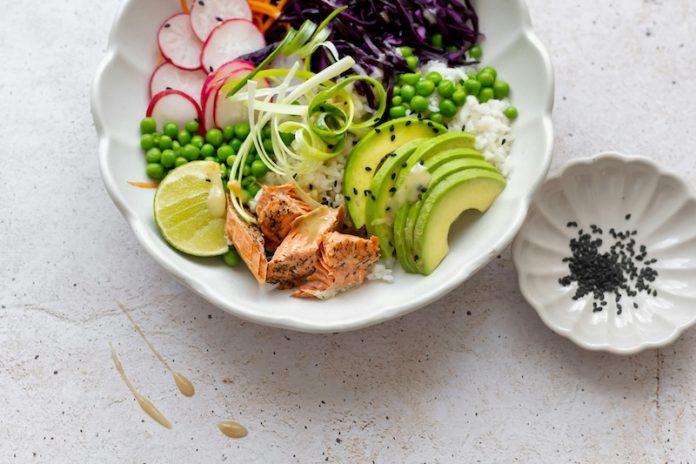
Fatty liver disease happens when too much fat builds up in the liver. This condition is becoming increasingly common, especially among people who are overweight, have type 2 diabetes, or lead a mostly inactive lifestyle.
The good news is that fatty liver, especially in its early stages, can often be improved—and sometimes even reversed—by making changes to your diet. Research shows that certain foods can reduce liver fat, lower inflammation, and support liver function over time.
One of the most widely recommended diets for fatty liver is the Mediterranean diet. This eating pattern focuses on whole, natural foods like vegetables, fruits, whole grains, legumes, nuts, seeds, olive oil, and fish.
A study published in The Journal of Hepatology found that people with non-alcoholic fatty liver disease (NAFLD) who followed a Mediterranean diet showed reduced liver fat and improved insulin sensitivity, even without major weight loss. The key is that this diet is rich in antioxidants and healthy fats, which help fight inflammation in the liver.
Vegetables, especially leafy greens like spinach, kale, and broccoli, are excellent choices for fatty liver. They are low in calories and packed with fiber and nutrients that support liver health.
One study in Nutrients found that higher vegetable intake was linked to a lower risk of liver fat buildup. Cruciferous vegetables like cauliflower and Brussels sprouts may also help the liver detoxify harmful substances.
Fruits are helpful too, especially berries, which are high in antioxidants like anthocyanins. Blueberries, strawberries, and raspberries can reduce oxidative stress and inflammation in the liver. However, people with fatty liver should eat fruits in moderation and choose whole fruits over fruit juices, which can spike blood sugar and add excess calories.
Whole grains such as oats, brown rice, and quinoa are better choices than refined carbs like white bread or sugary snacks. These grains have more fiber and help keep blood sugar levels stable, which reduces strain on the liver.
A study from The American Journal of Clinical Nutrition showed that replacing refined carbs with whole grains improved liver function and reduced fat buildup in people with NAFLD.
Fatty fish like salmon, sardines, and mackerel are rich in omega-3 fatty acids. These healthy fats have been shown to lower liver fat and reduce inflammation. A 2020 review in Liver International concluded that omega-3 supplements or diets high in oily fish can be beneficial for people with fatty liver. For those who don’t eat fish, flaxseeds and walnuts are plant-based sources of omega-3s.
Healthy fats from olive oil, avocados, and nuts also support liver health. A small study in Hepatology found that people who included extra virgin olive oil in their diet had reduced liver fat and improved liver enzyme levels. These fats are anti-inflammatory and help the body absorb fat-soluble vitamins.
Avoiding processed foods is just as important as adding healthy ones. Sugary drinks, white bread, pastries, processed meats, and deep-fried foods are all linked to liver fat buildup. These foods tend to increase insulin resistance and raise triglyceride levels, which can make fatty liver worse over time.
Drinking coffee—surprisingly—may also help. Studies show that people who drink 2–3 cups of coffee per day have lower levels of liver enzymes and less scarring in the liver. The protective effect seems to come from compounds in coffee that fight inflammation and support liver detoxification.
In summary, the best foods for fatty liver are whole, plant-based, and rich in healthy fats, fiber, and antioxidants. The Mediterranean diet provides a strong framework to follow.
By eating more vegetables, whole grains, berries, fish, and healthy oils—and avoiding sugar and processed food—you can help reduce liver fat and protect your liver for the long term. These dietary changes are not only good for the liver but also benefit your heart, weight, and overall well-being.
If you care about liver health, please read studies about a diet that can treat fatty liver disease and obesity, and coffee drinkers may halve their risk of liver cancer.
For more information about liver health, please see recent studies that anti-inflammatory diet could help prevent fatty liver disease, and results showing vitamin D could help prevent non-alcoholic fatty liver disease.
Copyright © 2025 Knowridge Science Report. All rights reserved.



